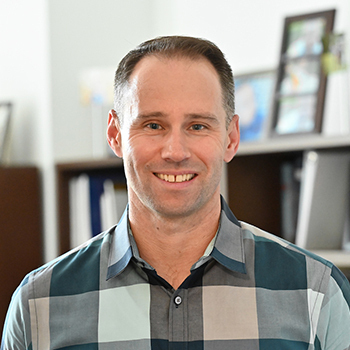There’s no ‘one size fits all’ when it comes to addressing men’s health issues globally

Even with important strides in addressing health issues across the globe, men have not benefited equally compared to women. Men’s life expectancies have not grown as steadily as women’s over the past few decades, and they are expected to live about five years less than women, according to 2021 global health data from the Human Mortality Database and the United Nations’ World Population Prospects. The discrepancy in life expectancy between men and women persists in places all over the world, and is even growing in other places.
At a time when health resources are at a premium and need to be wisely allocated, health professionals must find points within men’s lives when it makes the most sense to intervene and advocate for preventive care for promoting better health outcomes. Life transitions such as marriage and fatherhood are often pivotal and crucial intervention points — and men often experience long-term health benefits from those family roles, with lower mortality risks than single men without children. But just like every man is different, health concerns across global communities differ as well.
Research from the University of Notre Dame finds that not all life transitions produce the same health results, and not all men’s global health policies should look the same from one country to another.

In most contexts in the United States and Europe, men tend to experience physical health changes when they get married and start having a family. These changes include an increase in waist circumference and body mass index — a phenomenon known as the “dad bod,” explained Lee Gettler, associate professor of anthropology and chair of Notre Dame’s Department of Anthropology.
But Gettler’s research found that this phenomenon actually differs across societies. His study, recently published in the journal Social Science and Medicine, used a large longitudinal dataset from the Philippines to explore how men’s physical health changed across transitions to either marriage or cohabitation and fatherhood. His and his co-authors’ findings present a different picture of Filipino men’s health as it relates to these major transitions, compared to what is commonly seen in the U.S. and Europe.
Gettler worked with scientists from the University of Michigan, Northwestern University and the University of San Carlos in Cebu City, Philippines, to conduct and compile the research.
“Our research shows that the links between physical health with marriage and fatherhood are different for Filipino men in Cebu than they are in places like the United States or Europe,” said Gettler, who is also director of Notre Dame’s Hormones, Health and Human Behavior Lab and faculty affiliate with the Eck Institute for Global Health.
Gettler and his fellow researchers collected socio-demographic, health, behavioral and testosterone data from a long-running birth cohort study of Filipino men at ages 21, 26 and 31 (approximately) between 2005 and 2014. The researchers discovered that their group of 607 men fared much better than men in other cultures at the same stages of life.
“We don’t find that the married or cohabitating Filipino men have the same kind of negative health trajectories in terms of their physical well-being compared to the Filipino men who stayed single in our study,” Gettler said. “They are not experiencing deteriorating health, or demonstrating the dad bod, as a consequence of becoming a partner or father.”
The study acknowledged the myriad reasons behind this difference in outcome and said that diet and physical activity, as well as the social dynamics surrounding partnering, could explain such results. In addition, the study revealed that the Cebu men who were stronger and more muscular in their early 20s were more likely to later become partnered in the first place — a pattern the co-authors described as the “marital selection” model.
“Our findings indicate that an emphasis on men’s body composition as they transition to partnering and parenting may be less critical in Cebu and similar contexts,” the researchers wrote, compared to prioritizing other potential men’s health issues at this same stage in life, such as mental health.
“The transition to fatherhood represents a promising developmental period to encourage men to attend to their own health,” continued the co-authors, with the added benefit being overall family health in the long run. But, they cautioned, it is crucial to direct those promotional efforts and resources to the most pressing needs within a specific socio-ecological setting and community.
“In global public health, men’s well-being is often a secondary concern, despite men faring poorly compared to women on multiple dimensions of health across the life course,” Gettler said. “But to help address this gap, we not only need improved strategies and policies, but we also require a more robust understanding of factors that shape mens’ health across diverse contexts.
“This means we cannot simply transport a ‘one size fits all’ policy on men’s health and family life from one context to other settings around the world.”
Contact: Tracy DeStazio, associate director of media relations, 574-631-9958 or tdestazi@nd.edu
Latest ND NewsWire
- Smarter tools for policymakers: Notre Dame researchers target urban carbon emissions, building by buildingCarbon emissions continue to increase at record levels, fueling climate instability and worsening air quality conditions for billions in cities worldwide. Yet despite global commitments to carbon neutrality, urban policymakers still struggle to implement effective mitigation strategies at the city scale. Now, researchers at Notre Dame’s School of Architecture, the College of Engineering and the Lucy Family Institute for Data & Society are working to reduce carbon emissions through advanced simulations and a novel artificial intelligence-driven tool, EcoSphere.
- Notre Dame Lead Innovation Team partners with local WIC program to identify, prevent lead poisoning in childrenB.A.B.E. store “shoppers” now have something new to help their families: free lead screening kits offered by the University of Notre Dame’s Lead Innovation Team.
- Vatican honors Martin and Carmel Naughton with papal awardThe late Pope Francis, in one of his last acts, conferred the honour of the Order of Saint Gregory the Great upon Carmel and Martin Naughton, Trustee Emeritus of the University of Notre Dame. The papal honor is in recognition of the Naughtons’ outstanding philanthropy in the areas of education and the arts, particularly in the provision of philanthropic support and scholarships to Catholic education at the University of Notre Dame and Kylemore Abbey, and in their transformative contributions to higher education in Ireland.
- Brain tumor growth patterns may help inform patient care managementAssistant Professor Meenal Datta (University of Notre Dame/Wes Evard) A team of researchers from the University of Notre Dame, Harvard Medical School/Massachusetts General Hospital, and Boston University has developed a technique for measuring a brain tumor’s mechanical force and a new model to estimate how much brain tissue a patient has lost.
- Notre Dame elects two new TrusteesTwo new Trustees — John F. Crowley and Danielle Walker Merfeld — have been elected to serve on the University of Notre Dame’s Board of Trustees effective July 1. …
- From reaction to resolution: The future of allergy treatmentTwelve-year-old Lauren Eglite was thrilled to attend a Notre Dame football game with her father, Erik, in 2017, even though her acute peanut allergy demands constant vigilance. She was even more excited when the stadium’s brand-new video board aired an NBC Fighting…












